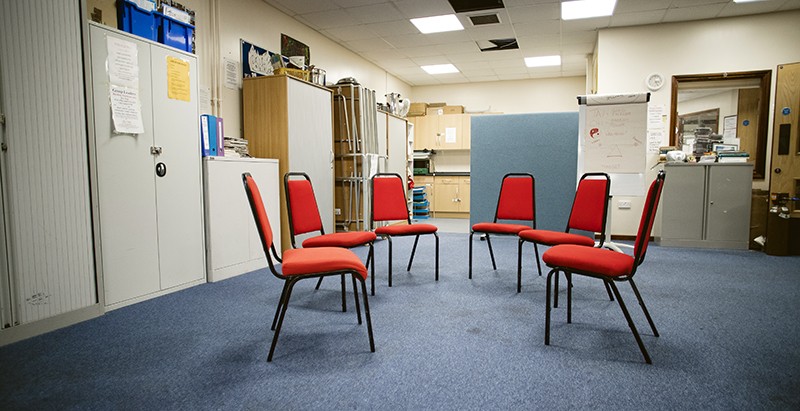
It’s not always easy to see when you need help. That’s how 22-year-old Trish* felt when she enrolled in StarVista’s First Chance Outpatient Services earlier this year, a 12-week substance abuse treatment program for adults suffering from alcohol or drug use issues.
A young adult, Trish found herself at First Chance after a local judge mandated the program as part of her treatment for a misdemeanor. Trish admits she didn’t think she had a problem with drugs or alcohol when she came to First Chance. “I never would have come to a program like this on my own,” Trish told StarVista staff. But as time went on, the young woman began to see her situation in a different light. She attended individual and group counseling sessions and began to identify with the stories and struggles of her fellow First Chance peers. “She could see herself in their stories,” a First Chance counselor explained. “She knew what her peers were feeling and the daily struggles they faced.”
Last year, First Chance Outpatient Services provided support to 189 individuals within San Mateo County.
Over time, Trish began to acknowledge how alcohol had played a role in some of her life challenges. She began attending AA meetings and acquired an AA sponsor. By the end of her First Chance experience, Trish had made incredible progress: she saw her own issues with alcohol clearly and learned to take steps to address them. With the encouragement of StarVista staff, she also enrolled in school to improve her economic status and to expand her life experience. A few months after entering the First Chance Outpatient Services, Trish graduated from the wellness program. She expressed her enormous gratitude for her First Chance counselor, the peers in her group, and the program as a whole.
“The StarVista-run program provides counseling for individuals with drug and alcohol issues and is an incredible partnership with law enforcement…” – San Mateo County Board of Supervisor David J. Canepa
First Chance is one of many programs operated by StarVista. It works closely with local law enforcement to ensure individuals in need are connected to programs that will help them grow. As Ed Barberini, Chief of the San Bruno Police Department, explains, “StarVista is not only an incredible resource for local law enforcement agencies in our collective effort to provide meaningful options for those facing many types of significant challenges, it also serves in creating stronger, more resilient communities. We would be much less effective as a police department without StarVista as a partner.” Last year, First Chance Outpatient Services provided support to 189 individuals within San Mateo County.

In addition to Outpatient Services, First Chance staff operate the First Chance Sobering Station, a 24-hour safe haven that serves as an alternative to jail for persons arrested for driving under the influence, public intoxication, and being under the influence of drugs. “I have worked in law enforcement for 36 years and feel it is our absolute responsibility to collaborate with Star Vista’s First Chance program to provide alternatives to incarceration,” explains Eric Wollman, Chief of the Burlingame Police Department and member of StarVista’s Board of Directors. “Having the ability to immediately impact a person’s future by affording any individual the opportunity to receive immediate help has always been of the utmost importance to me. First Chance provides an important resource to the law enforcement community.”
“The First Chance [Sobering Station] program keeps people out of jail and that is a good thing,” echoes San Mateo County Board of Supervisor David J. Canepa. “The StarVista-run program provides counseling for individuals with drug and alcohol issues and is an incredible partnership with law enforcement. I’ve personally visited the site and can tell that it makes a difference in the lives of the individuals it serves.” The program also provides support and refuge for individuals in immediate crisis, those involved in a domestic violence situation, victims of human trafficking, and people recently released from the Emergency Room or Psychiatric Emergency Services. Last year, the Sobering Station served 1,955 individuals.
*Names and identifying features have been changed to protect client confidentiality.
